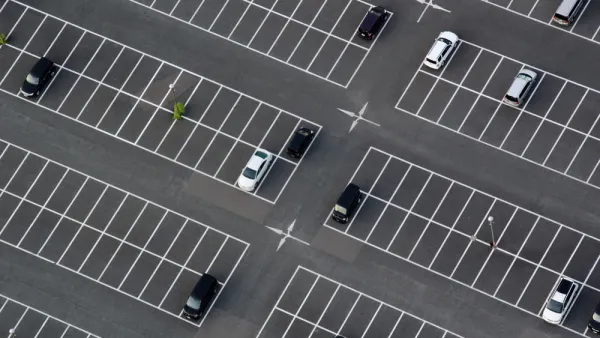Irvin Dawid discovered Planetizen when a classmate in an urban planning lab at San Jose State University shared it with him in 2003. When he left San Jose State that year, he took with him an interest in Planetizen, if not the master's degree in urban & regional planning.
As a long-time environmental activist, he formed the Sustainable Land Use committee for his local Sierra Club chapter and served six years on the Bay Area Air Quality Management District’s Advisory Council from 2002-2008. He maintains his interest in air quality by representing Sierra Club California on the Clean Air Dialogue, a working group of the Calif. Environmental Dialog representing business, regulatory and public health/environmental interests.
Major interests include transportation funding, e.g., gas taxes, vehicle miles traveled (VMT) fees, road tolls and energy subsidies that lead to unlevel playing fields for more sustainable choices.
He hails from Queens (Bayside) and Long Island (Great Neck); received an AAS in Fisheries & Wildlife Technology from SUNY Cobleskill and a B.S. from what is now Excelsior College.
After residing for three years on California’s North Coast, he’s lived on the San Francisco Peninsula since 1983, including 24 years in Palo Alto. Home is now near downtown Burlingame, a short bike-ride to the Caltrain station.
He’s been car-free since driving his 1972 Dodge Tradesman maxi-van, his means to exit Long Island in 1979, to the junkyard in 1988.
Major forms of transportation: A 1991 'citybike' and monthly Caltrain pass, zone 2-2. "It's no LIRR, but it may be the most bike friendly train in America."
Irvin can be reached at [email protected]
Nation's First VMT Fee Bill Passed By Oregon Legislature
If Gov. John Kitzhaber signs SB 810, as expected, Oregon will create a voluntary program for up to 5,000 motorists who will pay 1.5-cents for every mile they drive instead of the 30-cent state fuel excise tax.

From Peak Car to Peak Parking?
Fewer cars on the road, less driving, why not fewer parking spots? Cities like D.C., L.A., Denver, Philadelphia are responding by reducing or eliminating parking minimums, while Portland, which had already eliminated them, are bringing them back.
Quebec Rail Disaster Revives Oil Pipeline vs. Crude-By-Rail Debate
In a scene reminiscent of the Denzel Washington movie "Unstoppable", but without the heroic ending, an unmanned, 72-car oil train traveled 7 miles to Lac-Mégantic, pop. 6,000, where it derailed, setting off a fireball downtown. 5 fatalities so far.
Wash. Gas Tax Legislation Fails in Senate, Killing Columbia River Crossings
Wash. state senate Republicans dealt a crushing blow to governors of both Wash. and Ore. by killing a 10.5-cent gas tax bill needed to tap $850 million in federal funds to finance rebuilding of two, obsolete I-5 spans over the Columbia River.
Cargo Bikes Go Mainstream
Spotted on the front page of Saturday's WSJ is a picture of a Yuba Mundo longtail cargo bike, directing readers to Tom Vanderbilt's feature article of the "Off Guard" section describing the many types of cargo bikes. Main cargo is kids and groceries.

























